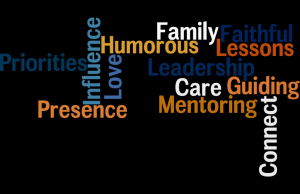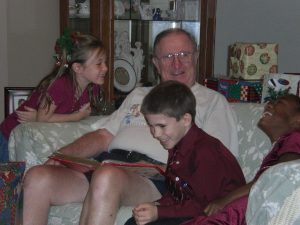And How to Add Them to Your Toolbox
 It is complicated and challenging being the leader. Especially a leader with a position of authority.
It is complicated and challenging being the leader. Especially a leader with a position of authority.
Demands are everywhere. Demands for more efficiency, more productivity. Do more with less. Keep everyone engaged. Reduce turnover. Make a profit. Get the reports in on time. Get more clients or customers. Answer emails. Hire good people. Get rid of unproductive employees. Fix problems.
It’s easy to get lost in all that. It’s also easy to forget what you were put there to do to begin with.
Your primary job, no matter your title, is to Boldly Lead your team.
What does it mean to Boldly Lead?
 To Boldly Lead means to be strong and courageous when facing the demands of the day. It means to always place your primary focus on the people in your team and providing them with what they need to accomplish their goals or deadlines. It means to protect your team when they need protecting.
To Boldly Lead means to be strong and courageous when facing the demands of the day. It means to always place your primary focus on the people in your team and providing them with what they need to accomplish their goals or deadlines. It means to protect your team when they need protecting.
To Boldly Lead means grabbing the corners of the blanket and shaking them forward; giving them hope and vision. It means navigating for them and bringing clarity in all situations.
To Boldly Lead means you place people first, because it is only through your people that things get done consistently and productively.
[tweetthis hidden_hashtags=”#BoldlyLead” url=”http://ow.ly/B5b3309TP7a” display_mode=”box”]To Boldly Lead means that your people are your highest priority at work![/tweetthis]
Boldly Lead with Critical Skills
If you want to Boldly Lead your team, there are tools you need to be ready to pull out and use constantly and consistently.
Empathy
To show empathy for others means that you have an interest in and relate to other people’s feelings. We show concern for when members of our team have issues, especially when those issues have a lot of emotional content. In an interview in Success Magazine, noted author Simon Sinek says it is as simple as saying the words “Is everything OK?”
He gives a great example that he documented in his book Leaders Eat Last. In an interview with a Marine Corp officer about what makes them so special; why every Marine is ready to lay their life on the line for each other. The officer said you could go to any Marine Corp mess hall and you would see that the least in rank eat first and the high officers last. Putting the needs of our team members – especially their emotional needs – before our own goes a long way towards showing that they are important. What you get in return is commitment.
Start with asking. “How are things going?“, “Are you ok?“, “How are you feeling?” And then listen. Don’t judge, don’t try to fix.
LISTEN.
Emotional Intelligence
More than just a buzzword, it’s an important skill for a leader.
Author and psychologist Daniel Goleman identifies five qualities you must demonstrate to achieve a level of emotional intelligence:
- Self-awareness
- Self-regulation
- Motivation (or passion)
- Empathy
- Social Skills
In other words, it’s not just enough to be self-aware (“I know I am a jerk sometimes”) we must also learn to control that and have the passion for others to want to, the empathy to understand how it impacts others, and the social skills to implement it.
Emotional Intelligence can only be effectively achieved through a commitment to daily personal growth. Develop a plan of intentional growth that helps you become more aware of your strengths and weaknesses, and follow a specific plan of daily improvement.
Strategic Planning
This is where vision and navigation come in. Seeing the road ahead and the path to take. Anticipating the roadblocks and obstacles and knowing how to overcome them or get around them. Coaching your team on how to move ahead and stay consistent with your mission and values.
Communication
Author and former presidential speech writer James Humes says it best: “The art of communication is the language of leadership.”
Is it any wonder that survey after survey, year after year, identifies communication as the number one skill sought by employers?
Learn and develop active listening skills. Study not just what to say but how to say it. Understand how personality types affect how we communicate. You will use this tool every day, all day.
Calendar
What does a calendar have to do with being a leader?
 Use it to schedule your personal growth time (minimum 30 minutes a day), your reflection and navigation time. Everything you absolutely need to do.
Use it to schedule your personal growth time (minimum 30 minutes a day), your reflection and navigation time. Everything you absolutely need to do.
I don’t know who originally said, but I heard it from Michael Hyatt: “What gets scheduled gets done.”
What else? Fill in the calendar with every person’s birthday, partner’s birthday, anniversary, children’s birthday, work anniversary, and other significant dates. Add a reminder to each. Make a point of recognizing each of them.
Making them important by remembering what’s important to them.
What tools do you use to Boldly Lead your team? Identify tools you need to add to your toolbox. How are you going to change things?









